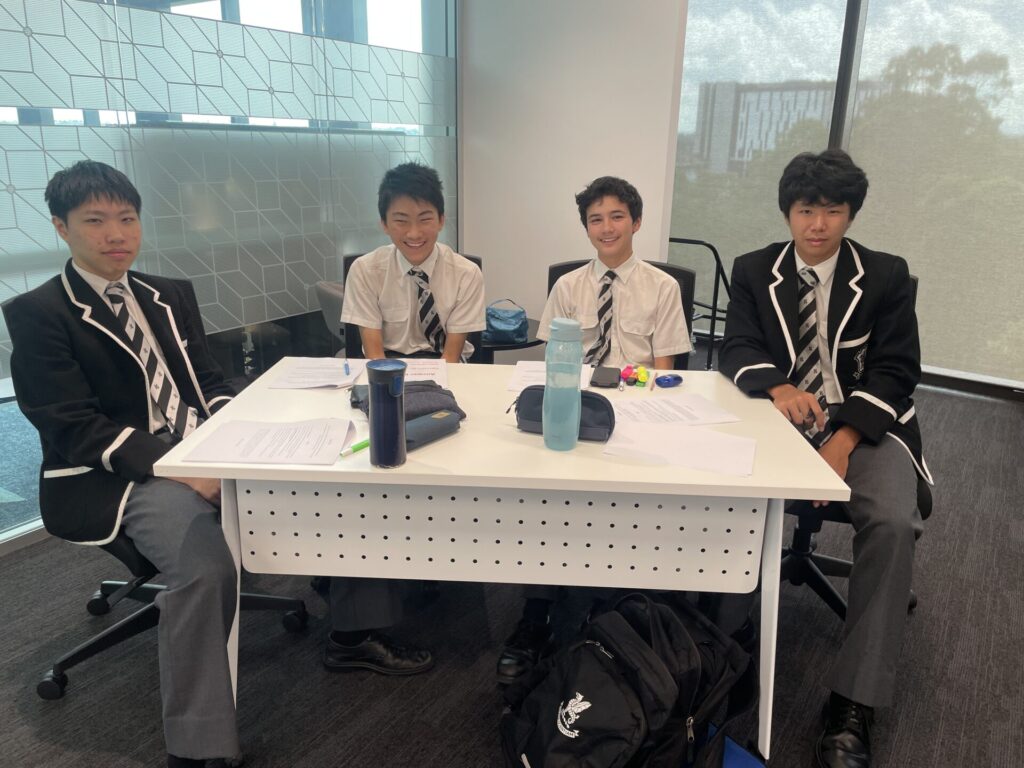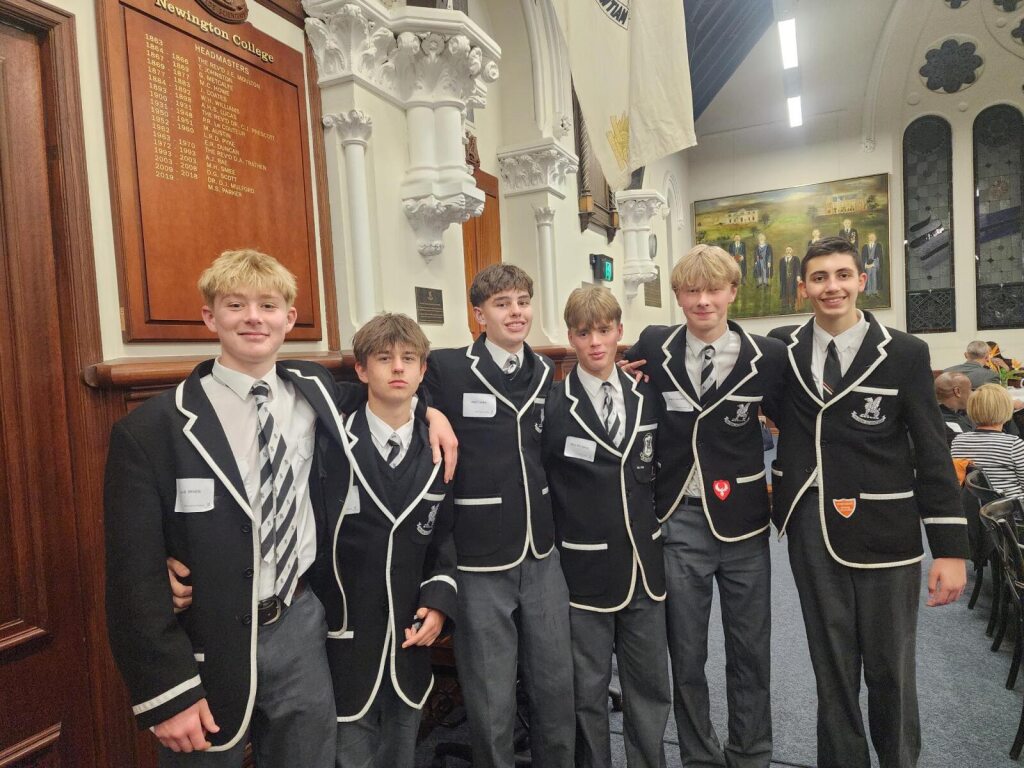Newington Shines Critical Thinking Light
As a philosopher and linguist, Dr Britta Jensen, Director of the Centre for Critical Thinking and Ethics (CCTE) at Newington, equates teaching critical thinking and ethics to teaching a new language.
‘It’s a good analogy because when you are learning a language you need to think very deliberately about vocabulary and metalanguage, and about which verb to use for instance, and how to shape that verb for use in the sentence you are trying to say.
‘Similarly, if we want our Newington students to be good at justifying their ideas, for example in their schoolwork, it’s important they spend time appreciating that a justification consists of a claim plus a reason and possibly also illustrated with an example. This way of thinking is motivated by an ethical obligation we feel as educators to equip our future citizens to be fair-minded, informed and discerning critical thinkers, which is vital for functioning democracies.’
Dr Jensen says the vocabulary of critical and ethical thinking equips students with the mechanics of using basic ‘thinking moves’ to articulate and hone cognitive skills such as ‘justify, assess, or evaluate’. These are the skills required by each syllabus we teach.
‘Critical thinking gives our students the tools to accomplish important things in future learning like mounting an argument or counter argument, refining ideas, identifying assumptions or analysing a piece of text or evaluating someone else’s idea in relation to the work they are studying or thinking about in class.’
Newington College’s ongoing program of public lectures, part of the CCTE’s offering, was first rolled out by the previous Head of Philosophy and Religious Studies, Dr Jeremy Hall, who was also Co-Director of CCTE with Dr Jensen from 2022 to 2023.
Open to the school community and the public, the public lectures are ethics focused and permeate all subjects and area of life. Past speakers to offer their expert view for audience consideration have included world class thinkers and philosophers including AC Grayling, Professor Mark Colyvan, Baroness Susan Greenfield CBE and Dr Stephen Law. These free events attract large and engaged audiences of 100 attendees a time.
‘Anyone is welcome, and this is an important opportunity for engagement and for Newington College to give outwardly to our community,’ says Dr Jensen.
In 2022 with the establishment of the Centre for Critical Thinking and Ethics, the College forged a path to become ‘a lighthouse school for critical thinking’. This initiative includes programming for our students as well as interschool events. We have organised customised furniture, arranged as senate seating to promote the centre’s dialogic model with emphasis on collaborative discussions as a core feature of classroom practice.
Critical thinking is included in the school’s curriculum from K to 12, but the curriculum does not offer advice on how to teach it, says Dr Jensen. The CCTE aims to address this and equip teachers with the tools for best practice in this space. Dr Jensen is now collaborating with staff to align and curate topics of the public lectures to subject areas of student study and curriculum. The CCTE also provides extensive opportunities to staff for professional learning through partnership with the Association for Philosophy in Schools NSW.
‘There’s a very big push right now in Education for teachers to teach explicitly; to be very explicit about the content you wish your students to know,’ says Dr Jensen. ‘Our approach is to advocate for being explicit about the nature of the thinking required to engage with the learning that you’re intending the students to do. To date more than one third of our staff have completed the optional professional learning courses with the CCTE, and we are seeing more teaching staff from other schools across NSW join our courses.’
Next week (August 30) the centre will host Meeting of Minds. An annual event, this event sees Year 7 and Year 8 students from schools across NSW come together for a day of activities including collaborative inquiry, says Dr Jensen.
‘We’ve got over 100 students from about ten different schools joining us with some coming from as far as Dubbo and Newcastle.
‘Its the third year of Meeting of Minds and it keeps growing. It’s really a matter of build it and they will come.’
It is clear that there is demand for events like this, so we look forward to expanding in this space.
Earlier this term the CCTE joined forces with the Philosophy in Schools Association of NSW to host the Sydney Philosothon, where sixteen teams of students, again from across NSW from Public, Religious and Independent schools, engaged in a series of collaborative philosophical discussions known as Communities of Inquiry.
Leaders of the CCTE are committed to showcasing how critical thinking pedagogy supports learning, and recently returned from presenting at International Council of Philosophical Inquiry with Children (ICPIC) in Naples and the World Congress of Philosophy convention in Rome. Dr Jensen and Ms Kennedy White presented papers as part of Philosophy with Children and the Pre-College Philosophy around the world sessions. Their paper which outlines the Critical Thinking initiative – Newington College: Building Thinking Communities, co-authored with Headmaster Mr Michael Parker – was recently published in the Journal of Philosophy in Schools, an open-access, online journal. For a condensed version, you can view this blog, written by Jensen earlier this year: Pre-College Philosophy in Sydney, Australia: A Whole School Approach.
‘We have great capacity here at Newington to share our teachings and learnings as thought purveyors and our vision is to establish Newington College as one of the leading headquarters of critical thinking best practice in education. We are proud of what we have accomplished in just two years, but there is much more to come…’
The CCTE’s next public program continues throughout the year including Professor Alexandre Lefebvre on Liberalism as a Way of Life on October 30.



